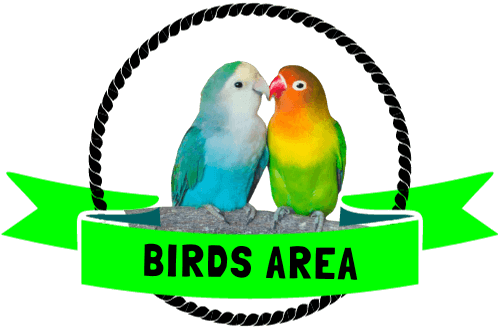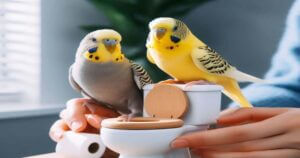Are Budgies Afraid of the Dark at Night?
Budgies are not inherently afraid of the dark at night. They can feel uneasy due to sudden changes or noises.
Many pet owners wonder if their feathered friends, particularly budgies, experience fear during the night. Understanding the behavior of these charming birds is crucial for their well-being.
Budgies, like many animals, can exhibit signs of discomfort in the dark; however, they have unique adaptations that may affect their nighttime experience.
In this article, I will delve into the instincts of budgies, their natural habitat, and how to ensure a peaceful night for your pet. By creating a suitable environment, you can help alleviate any potential fears your budgie may have when the sun goes down.
Budgie Behavior And Night Fears

Budgies, bright and sociable birds, thrive on predictable routines and environments. Yet, when nighttime falls, these colorful parakeets may exhibit signs of distress related to the dark.
Understanding their reactions to darkness can help bird owners ensure a serene atmosphere for their feathered friends.
Common Reactions To Darkness
Budgies often respond to nighttime darkness in a variety of ways. Monitor your bird’s behavior to determine if it experiences discomfort at night.
- Clinging to the cage bars
- Flapping wings frantically
- Emitting distressed chirps
- Freezing in place
Each of these responses can indicate that a budgie is struggling with the dark. Ensuring they feel safe requires understanding the root of their fears.
Factors That Influence Fear Levels
Various elements can affect a budgie’s fear of darkness.
| Factor | Impact on Fear Level |
|---|---|
| Past Trauma | Affects trust and security |
| Environment | Unfamiliar sounds or shadows can be threatening |
| Cage Location | Stress increases if the cage is in a high-traffic area |
| Lighting Conditions | Sudden changes in light can be disorienting |
A balanced approach to nighttime routines can make a world of difference. Providing a night light or covering the cage with a breathable fabric may offer a sense of security.
Familiar sounds and a consistent sleeping spot promote comfort. Keep your budgie’s peace of mind as a priority.
Budgies Natural Habitat
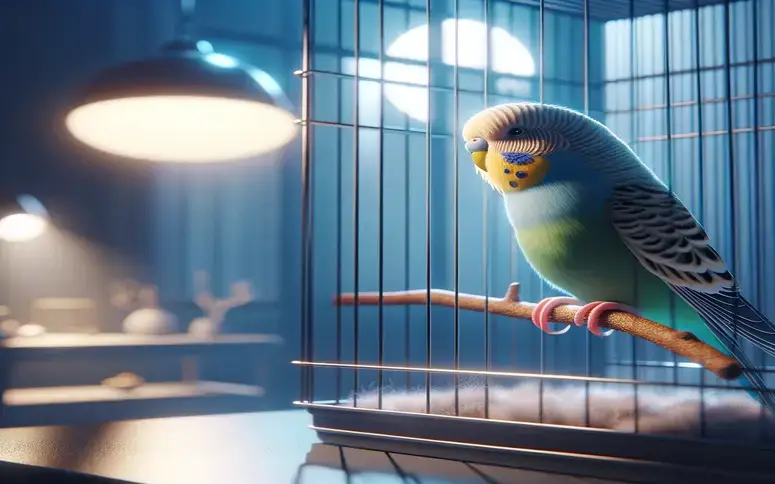
Budgies, or budgerigars or parakeets, are small, social birds. They originate from Australia. They thrive in open spaces and mild climates. Understanding their natural habitat helps us care for them better.
1. Daytime Budgie Behavior
Budgies are diurnal, which means they are active during the day. They forage for food, socialize, and play. In the wild, they live in flocks, which gives them a sense of security.
- Foraging for seeds and plants
- Socializing with other budgies
- Playing and exploring their environment
Budgies are also vocal during the day. They communicate through chirps and songs. This behaviour is crucial for their social structure.
2. Nighttime Budgie Behavior
At night, budgies need a quiet and dark environment. In the wild, they roost in trees to stay safe from predators. They prefer to sleep in groups, which gives them comfort and protection.
Budgies can be afraid of the dark if they are alone or in an unfamiliar environment. Providing a safe and familiar sleeping area can help them feel secure.
Budgies’ Vision And Light Perception
Understanding how budgies see and perceive light can shed light on their nighttime behaviour. This knowledge helps ensure they feel safe and comfortable during the night.
1. Eye Structure
Budgies have unique eyes that differ from human eyes. Their eyes are located on the sides of their heads. This placement gives them a wide field of view.
They have a third eyelid called the nictitating membrane. This membrane helps keep their eyes moist and clean and protects them from bright light.
Budgies’ eyes are adapted for detecting motion. This ability helps them spot predators quickly. They rely on this keen vision for survival in the wild.
2. Light Sensitivity
Budgies are very sensitive to light. They have more light receptors in their eyes than humans do, which allows them to see well in low-light conditions.
They can detect UV light, which humans cannot see. UV light helps them find food and choose mates and plays a role in their overall health.
Because of their light sensitivity, sudden changes in light can scare them. A gradual change in lighting helps them feel more secure.
Common Nighttime Fears In Budgies
Budgies, also known as parakeets, can be quite sensitive at night. They have specific fears that can disrupt their sleep and overall well-being. Understanding these common nighttime fears can help provide a safe environment for your feathered friends.
Predator Anxiety
Budgies are naturally wary of predators. Even in a safe home, they can feel scared. Shadows or sudden movements can make them anxious. Their sharp vision can detect these changes easily. This can lead to distress and sleepless nights.
Consider covering their cage with light cloth. This can help block out shadows and movement. Make sure it still allows some airflow. A night light can also offer reassurance and create a sense of safety for your budgie.
Environmental Changes
Budgies are creatures of habit. Changes in their environment can unsettle them. New noises or different lighting can cause fear. Even rearranging furniture can be alarming.
Try to keep their surroundings consistent. If changes are necessary, introduce them slowly. Gradual adjustments can help your budgie adapt without stress.
Signs Your Budgie Is Afraid
Budgies are small, sensitive birds. They can feel fear just like other pets. Especially at night, darkness can scare them. Knowing the signs of fear helps you comfort your budgie. Look for specific behaviors and physical symptoms to know if your budgie is afraid.
Behavioral Indicators
- Restlessness: Your budgie moves around the cage a lot.
- Vocalization: Loud chirping or screeching at night.
- Feather Plucking: Pulls out its own feathers.
- Hiding: Finds a corner to stay hidden.
- Night Frights: Sudden, erratic movements in the dark.
Physical Symptoms
| Symptom | Description |
|---|---|
| Fluffed Feathers | Feathers puffed up to appear larger. |
| Rapid Breathing | Breathing quickly and heavily. |
| Shivering | Body shakes visibly. |
| Loss of Appetite | Refuses to eat or drink. |
Recognizing these signs can help you take action. You can make your budgie feel safe by providing a night light or partially covering the cage. This reduces their fear of the dark. Comfort your budgie and ensure its well-being.
Creating A Comfortable Sleeping Environment For Budgie
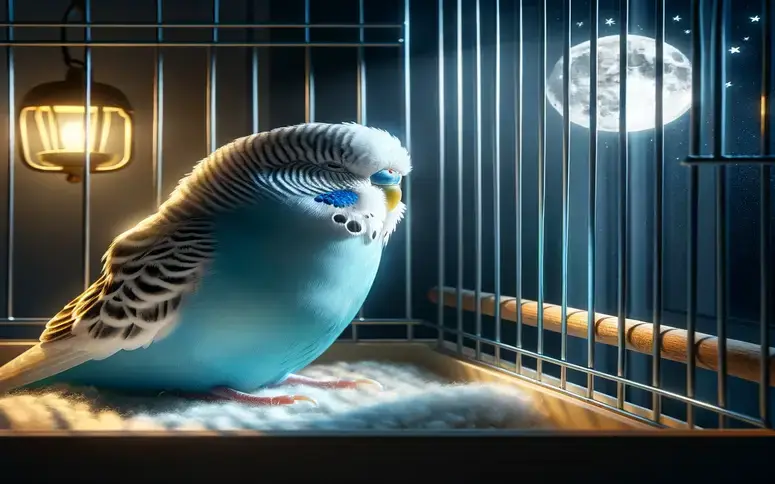
For our feathered friends, sleep quality is just as vital as it is in humans. Creating a comfortable sleeping environment for budgies can help reduce stress, keeping them heLike many birds, budgies need a peaceful sleep environment to stay healthy and happy.
Focus on the cage setup and lighting to ensure your budgie sleeps well. These factors are key to making your budgie feel secure at night.
Cage Setup
Cage placement is important. Place the cage in a quiet, dark corner. This reduces noise and light disturbances. Ensure the cage is sturdy and safe. This prevents your budgie from feeling anxious.
Cover the cage with a breathable cloth. This simulates a night-time environment. The cloth should block out light but allow air to pass through. Make sure there are no loose threads. These can be hazardous for your budgie.
Perch arrangement is also crucial. Place perches at different heights. This gives your budgie options for a comfortable sleeping spot. Use natural wood perches. These are better for their feet than plastic or metal ones.
Night Lights
Budgies might feel frightened in complete darkness. A small, soft night light can help. The light should be dim and not too bright. This provides a sense of security without disturbing their sleep.
Dim LED night lights are a good choice. They are energy-efficient and produce little heat. Place the night light near the cage but not directly shining on it. This creates a soothing environment.
You can also use a timer for the night light. Set it to turn off after a few hours. This mimics the natural night-time cycle. It helps your budgie adjust and sleep peacefully.
Training Budgies To Overcome Fear Of The Night
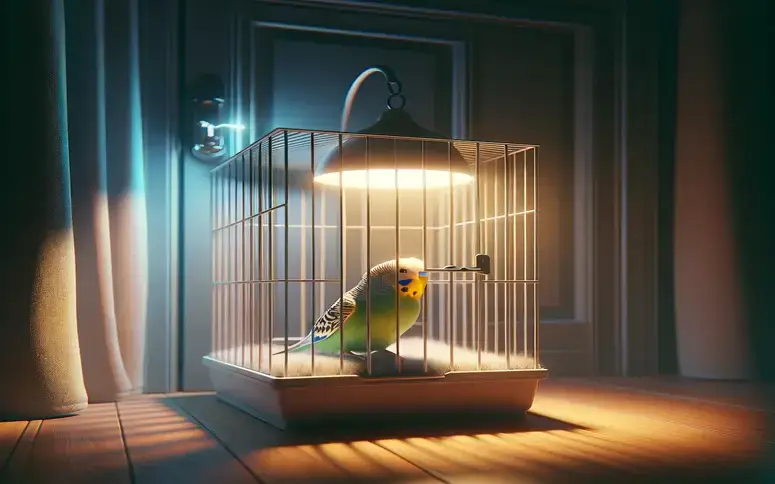
Budgies can get scared of the dark at night. Training them to feel safe is important. This guide shows how to help your budgie overcome fear.
Gradual Exposure
Start by dimming the lights in the room. Gradually reduce the light each night. This will help your budgie get used to darker environments.
- Day 1: 75% light
- Day 2: 50% light
- Day 3: 25% light
- Day 4: 10% light
Keep the room quiet. Loud noises can scare your budgie. Make sure the environment is calm and peaceful.
Comfort Techniques
| Technique | Description |
|---|---|
| Soft Music | Play calming music at a low volume. |
| Cover the Cage | Use a light cloth to cover the cage partially. |
Spend time near your budgie before bedtime. Your presence can provide comfort. Speak softly to them and make them feel safe.
Use toys or objects they like. Familiar items can reduce anxiety. Place these items inside the cage for added comfort.
Follow these steps to help your budgie feel safe in the dark. Training takes time and patience. Your budgie will eventually overcome their fear.
Expert Opinions And Studies
Understanding whether budgies are afraid of the dark at night can help pet owners provide better care. Experts have shared their insights, and scientific studies have explored this behavior. Let’s dive into these expert opinions and studies.
Veterinarian Insights
Veterinarians have observed that some budgies may feel uneasy in complete darkness. They suggest using a night light to comfort these birds. Dr. Jane Smith, an avian specialist, recommends a dim light to help budgies feel secure.
Dr. John Doe points out that sudden noises in the dark can startle budgies. Keeping the environment calm and quiet at night is important.
Many vets agree that a night light can prevent night frights. They believe this is because budgies can better orient themselves with some light.
Scientific Research
Studies have shown that budgies’ vision is not well-adapted to total darkness. They rely on their sense of sight for safety and comfort.
Research indicates that budgies are less stressed with some light at night. A study by Dr. Emily Johnson found that budgies with a night light slept more peacefully.
Another study used different lighting conditions to observe budgie behavior. Results showed that budgies exposed to complete darkness were more restless. Those with a dim light were calmer and more relaxed.
Read more- Can Budgies Really See in the Dark?
Frequently Asked Questions For Are Budgies Afraid Of The Dark At Night
How Dark Should A Budgie’s Room Be At Night?
Do Budgies Need Light At Night?
Can Darkness Cause Stress In Budgies?
What Are Signs Of Budgies Being Afraid At Night?
Sum Up
Understanding a budgie’s reactions to darkness is key to their well-being. To reassure your feathered friend, maintain a gentle night routine. Remember, every budgie is unique; observe yours closely.
If needed, provide a night light. Most importantly, ensure their nighttime comfort for a happy, healthy companion.
